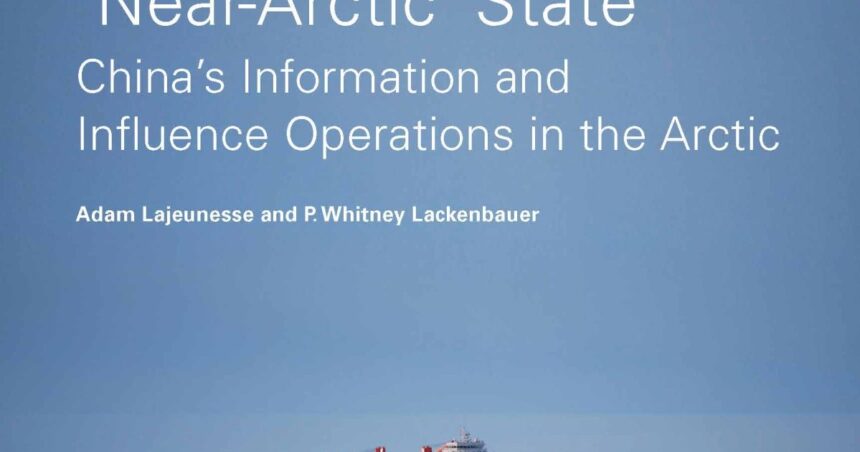Summary by Geopolist | Istanbul Center for Geopolitics:
This report, written by Dr. Adam Lajeunesse and Dr. Whitney Lackenbauer, examines China’s efforts to achieve its goals and exert influence in various Arctic states, including Iceland, Canada, Denmark, Norway, Sweden, Finland, the United States, and Russia. Each chapter follows a similar framework, outlining the political, economic, and strategic objectives as well as relevant messaging directed towards each Arctic state.
For years, the People’s Republic of China (PRC) has been asserting that it is a “Near-Arctic state” with the right to play a more significant role in Arctic governance. These assertions have raised concerns in the West, which are understandable considering Beijing’s aggressive behavior towards its neighbors, its growing military might, and its powerful economy.
The term “Near-Arctic State” is used by the People’s Republic of China to describe its perceived geographic and strategic proximity to the Arctic region. This designation is part of China’s broader strategy to assert its role in Arctic governance and influence Arctic affairs.
Here are some key points regarding China’s interests and actions related to its self-designation as a “Near-Arctic State”:
* Strategic Interests: China’s interest in the Arctic is driven by several strategic motivations. These include access to new shipping routes, natural resources such as oil, gas, and minerals, and the region’s scientific and environmental significance.
* Influence and Relationships: China seeks to build relationships with Arctic states to enhance its influence in the region. This involves engaging in scientific research collaborations, investing in infrastructure projects, and participating in multilateral forums like the Arctic Council.
* Narrative and Messaging: China presents itself as a benevolent partner with much to offer Arctic states. Its messaging emphasizes respect for Arctic state sovereignty while simultaneously demanding respect for China’s interests. This narrative is used to justify China’s involvement in Arctic affairs and counter criticism.
* Economic and Scientific Engagement: China has pursued economic partnerships and scientific collaborations with Arctic countries. For example, it has invested in infrastructure and energy projects in Iceland and established the China-Iceland Arctic Science Observatory.
* Geopolitical Considerations: China’s actions in the Arctic are also influenced by its geopolitical strategy, particularly in relation to its broader relationship with the West and its partnership with Russia. China’s ties with Russia have become more prominent as relations with Western countries have soured.
Overall, China’s “Near-Arctic State” designation is part of its efforts to secure a foothold in the Arctic region. By leveraging diplomatic, economic, and scientific avenues, China aims to enhance its influence and pursue its strategic interests in the region.
Read more: SellingNearArctic-4







